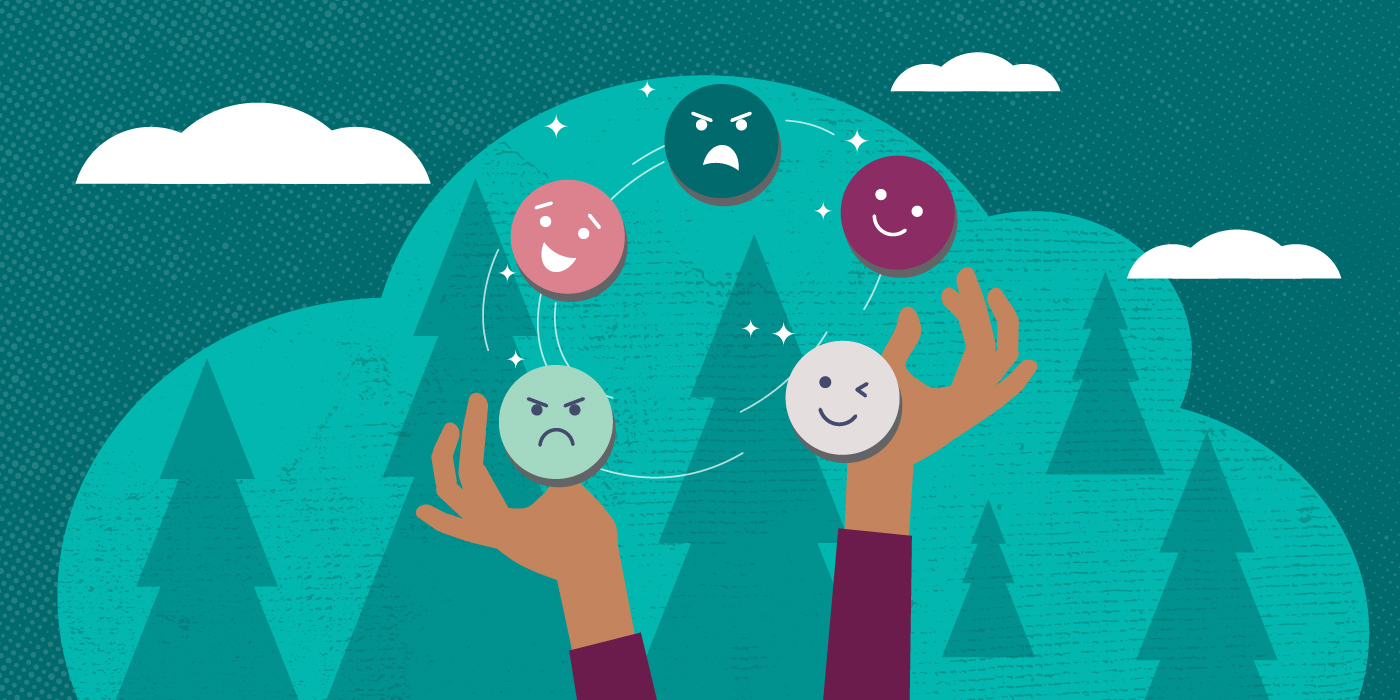December can be an especially stressful time of the year. The holiday to-do list may feel overwhelming. Disappointment can swell if the “magic” of the season doesn’t live up to expectations. Even the thought of spending the holidays with extended family can trigger feelings of anxiety.

“Oftentimes, people feel guilty because society tells us that the holidays are supposed to be filled only with positive emotions. But this isn’t realistic for everyone, and it’s OK to feel stressed, overwhelmed, sad or disappointed,” says Emily Willroth, assistant professor of psychological and brain sciences in Arts & Sciences.
While unpleasant feelings are common during the holidays — and other times of the year — how you respond to those emotions can have an even bigger impact on your overall psychological health, according to a study published in summer 2023 in the journal Emotion and co-authored by Willroth.
Willroth and collaborators found that people who habitually judge unpleasant emotions such as sadness and anger as inappropriate or negative are more likely to experience anxiety and depression than those who are more accepting of these types of emotions.
“Our research suggests that it may be beneficial to accept those unpleasant emotions as normal responses to the situation that will likely pass with time, rather than judging those emotional responses
as bad or wrong,” Willroth says.
Importantly, that doesn’t mean that you must accept the situations that led to those unpleasant emotions.
“It’s OK and often beneficial to try to change the situations that give rise to negative emotions,” Willroth says. “For example, you might make changes to a busy holiday schedule so that you feel less overwhelmed, or you might set boundaries with your family to reduce feelings of sadness or anger.
“Accepting our unpleasant feelings doesn’t mean accepting the unpleasant situations that cause them,” she says.
Many people judge their emotions from time to time, she says. For some, however, judging their emotions may be a routine part of how they respond to them. That’s where the trouble comes in.
It can be difficult to break habitual tendencies, but a good place to start is by recognizing that unpleasant emotions are a natural response to many situations and can even be adaptive, Willroth says. For example, sadness signals to other people that we need their support; fear can protect us from risky situations; and anger can help us stand up for ourselves and others.
Other research suggests that talking about your emotions with others can be helpful, Willroth adds. Once we recognize that unpleasant emotions are natural, normal and likely to pass, we can begin to accept them rather than judge them.
“If you notice yourself judging your emotions, don’t dwell on it,” Willroth says. “If you find that you frequently experience intense unpleasant feelings or unpleasant feelings that last a long time and that disrupt your quality of life, though, it may be helpful to reach out to a mental health professional.”



